Water: Human Right or Commodity?
“[..] All people have the right to safe drinking water, sanitation, shelter and basic services."
- Ban Ki-moon, UN Secretary General, 2010

This exhibition explores human rights in a world of increasingly limited natural resources; specifically, access to clean water. A result of the research and collaborations arranged by two Grand Valley State University social work faculty members, Dr. Paola León and Dr. Steven Smith, this exhibition includes images and descriptions of the challenges faced in El Salvador and Flint, Michigan. Organized into themes dealing with civic engagement, infrastructure, ownership/legislation, public health and scarcity/contamination, these materials provide local, national and international context to water rights.
The El Salvador portion of the exhibition, focusing on the lack of running water in homes, social activism and contamination by the mining industry, was organized by Dr. Paola León. Dr. Steven Smith organized the Flint portion of the exhibition, documenting the ongoing issues and continuing recovery of the City of Flint’s tainted water supply.
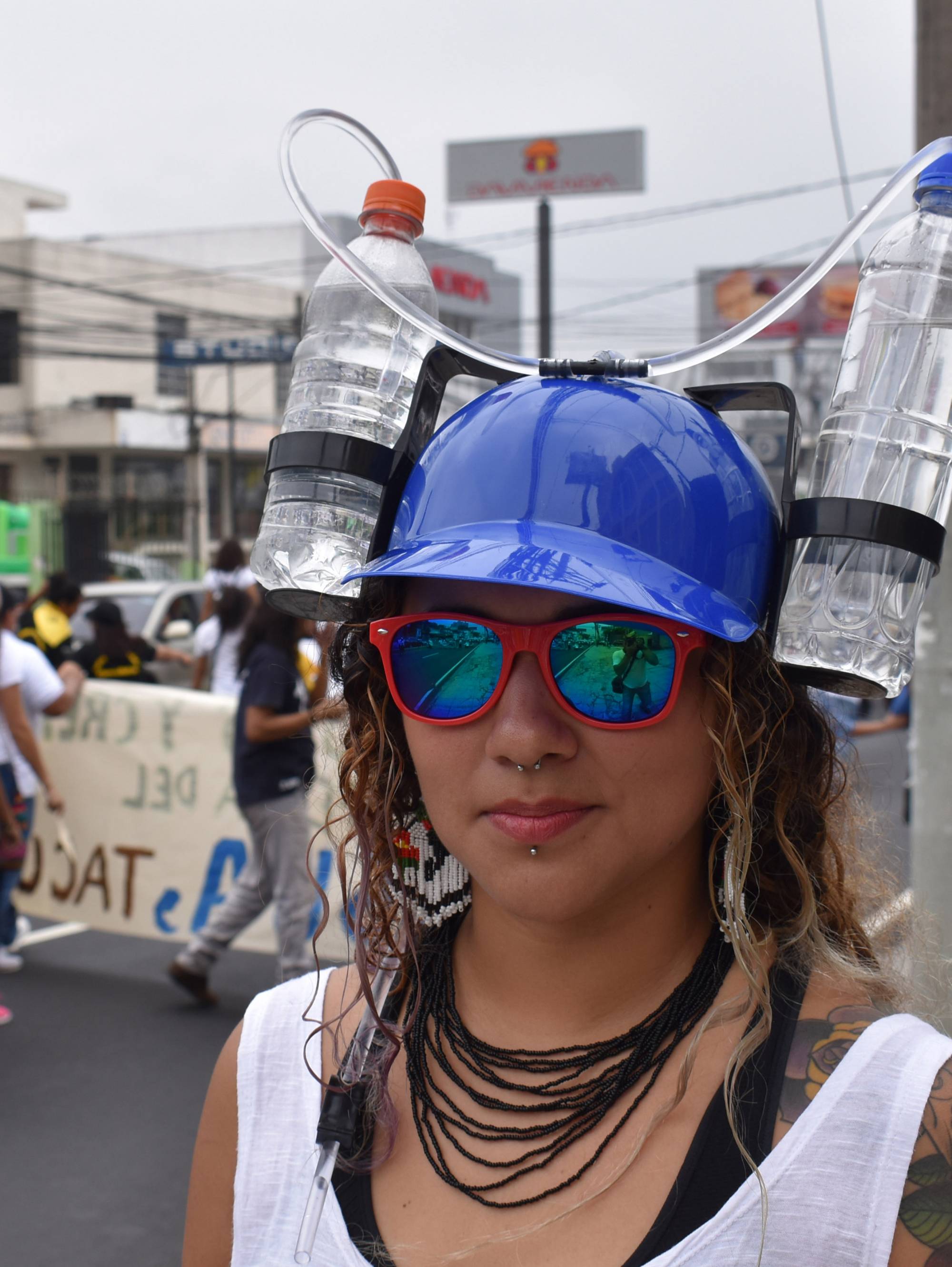
The March for the general water law brought together members from several different communities. Water has been an important topic due to it being so scarce and high in price. Many people attended this event in hopes to grab the attention of political members.
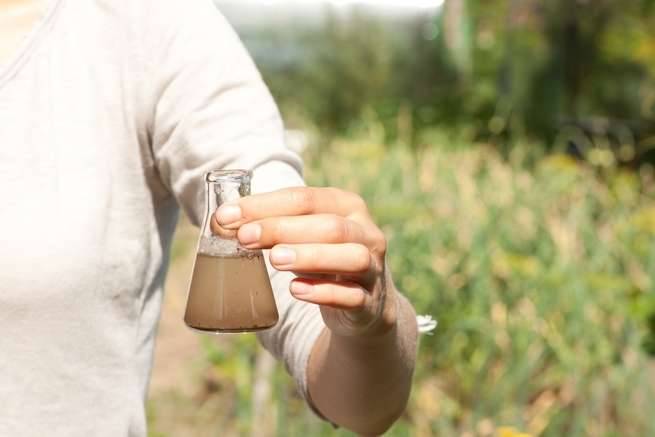
Samples of water from the Flint River, as well as water from community faucets, were collected for testing. Researchers through University of Michigan-Flint have actively been examining the water to monitor levels of lead, trihalomethanes, and bacteria to assess the safety of consumption. As shown, the low quality of the water is apparent even without this testing.
Water in Flint, Michigan and El Salvador
El Salvador is a country that has achieved the greatest progress in the world in terms of increased access to water supply and sanitation.However, water resources are heavily polluted and the great majority of wastewater is discharged without any treatment into the environment. With a scarce amount of clean water the issue of privatizing water has been highlighted and the people of El Salvador are trying to understand current laws so they can work towards amending them in favor of equal justice.
Flint, Michigan underwent a water crisis and a subsequent federal state of emergency in 2016. The water supply, diverted from the Flint River, was contaminated by lead, trihalomethanes, coliform bacteria, and Legionnaires' disease. While the water is now considered drinkable, the lead pipes still leach lead into the water, and aren't expected to be replaced until 2020.
(from watergvsu.weebly.com)

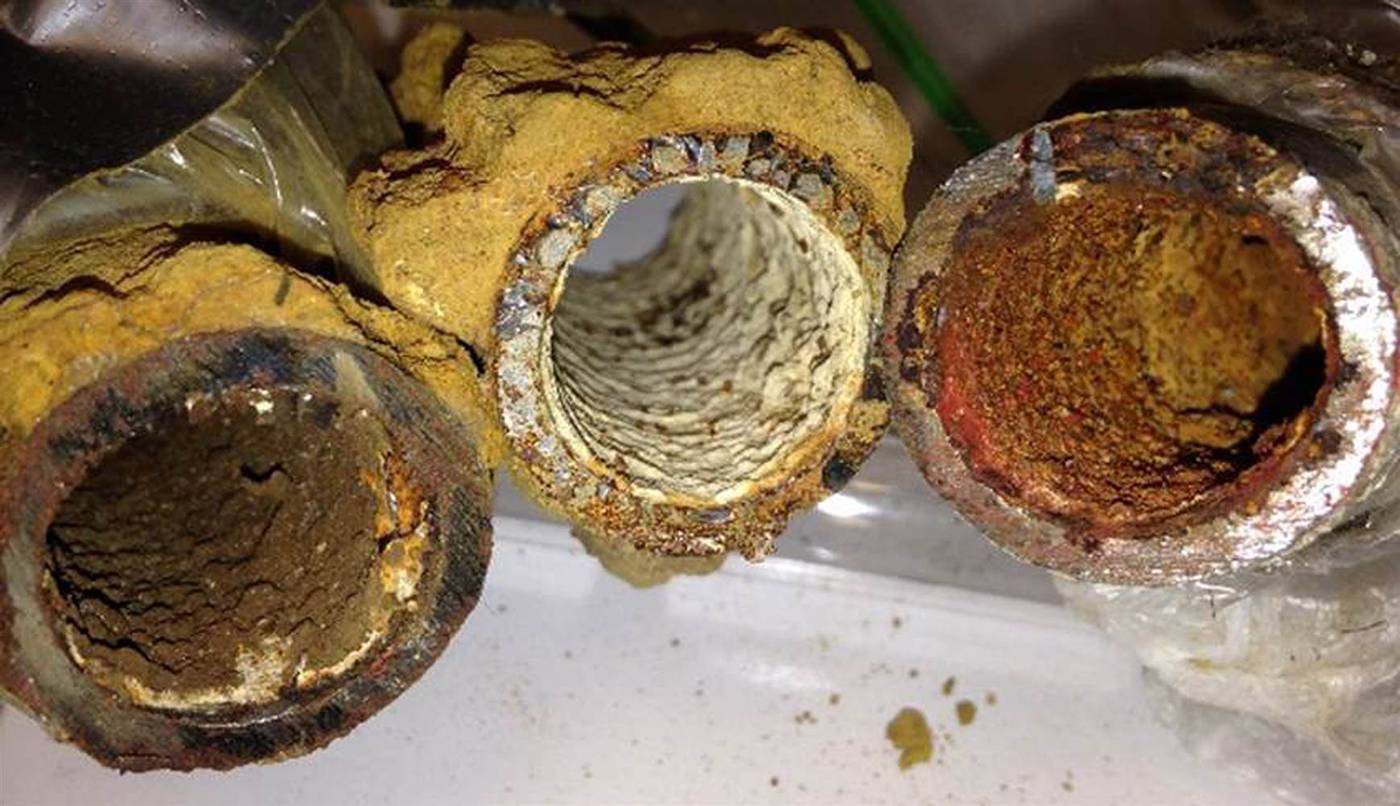
When the water in Flint was treated with trihalomethanes, the chlorine in this chemical began to corrode the pipes. With no compensatory treatment, the iron in the pipes reacted with the chlorine, leading to excessive damage and subsequent water contamination.
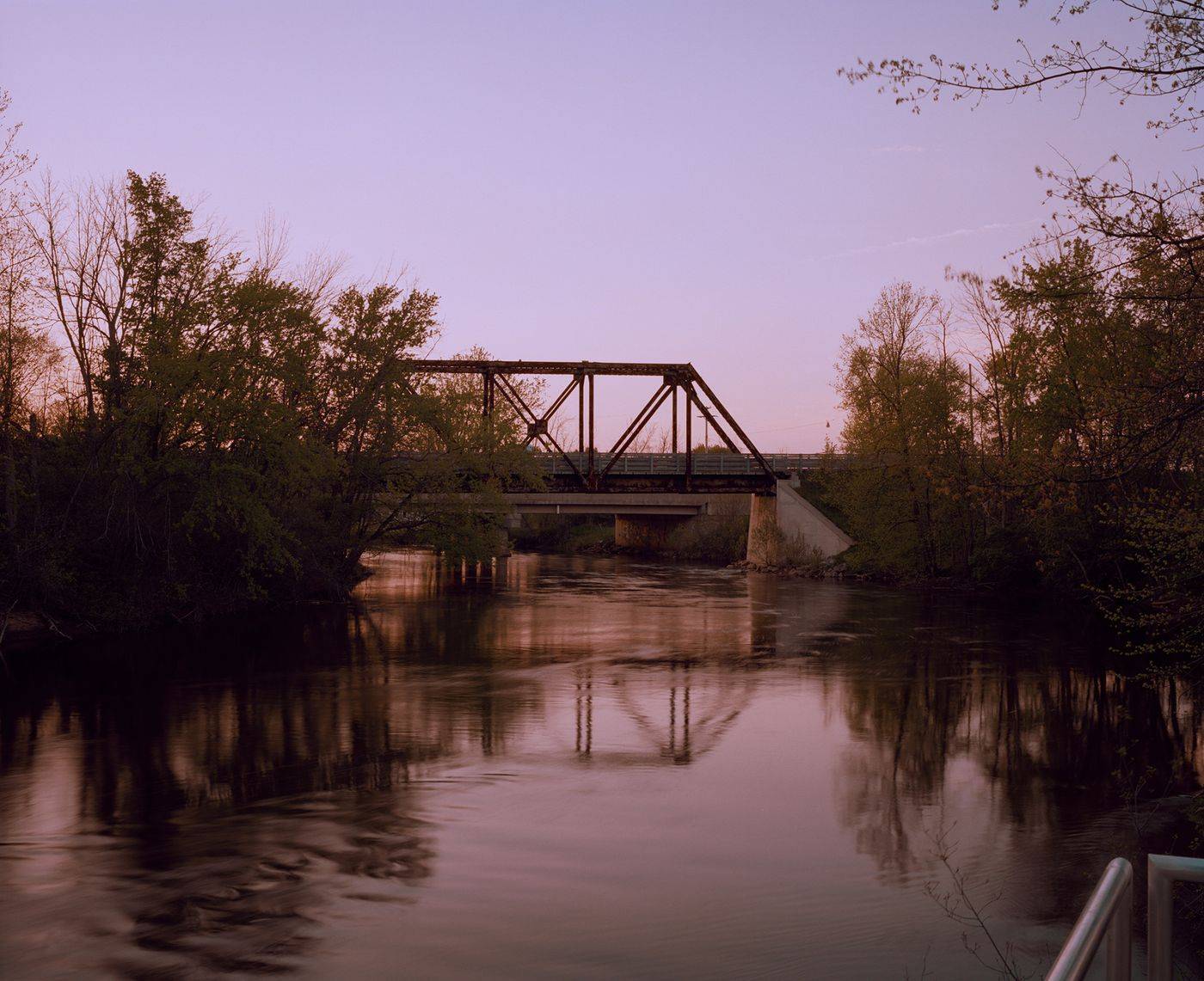
This photograph depicts a railroad bridge reflecting over the Flint River, the source of the water crisis. Many of the structures over the river have been recently renovated or restored to bring pride and beauty back to Flint.
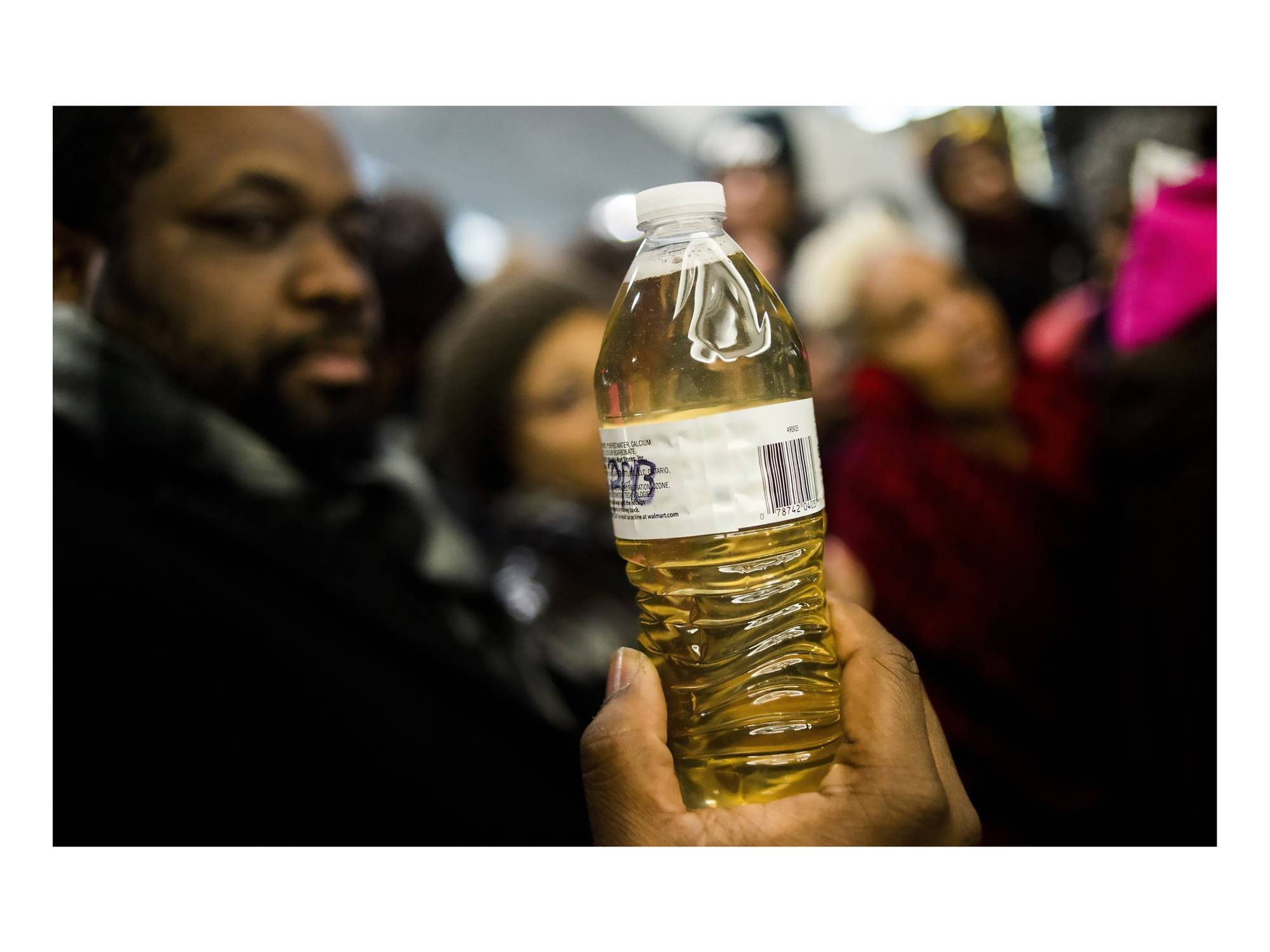
The water depicted was collected from a local faucet by a member of the Flint community. Due to aquatic contamination, the water appears discolored, in many cases yellowed or translucent. Community members presented water samples at a public hearing to substantiate complaints.
Resources
To find out more about the water crisis in Flint, MI and El Salvador as well as to learn more about GVSU's Social Work program visit:
- Water Rights Project at GVSU
- The Flint Water Crisis
- The Water Crisis in El Salvador
- UN Declaration of Water as a Human Right
- GVSU Social Work Program
Featured Events
The Art Gallery partners with faculty, staff, and community members in order to offer unique perspectives to visitors of the gallery. For more information about the Art Gallery's current events and programming visit our events page. For questions regarding upcoming programming or if you would like to inquire about partnership programming call (616) 331-2563 or email g[email protected].
Hours and Location
Blue Wall Gallery
December 18, 2018 - June 21st, 2019
Richard M. DeVos Center, Building B
Robert C. Pew Grand Rapids Campus
Grand Rapids, MI 49504
Admission is free and open to the public. Gallery hours are reflective of the Richard M. DeVos Center, including changes made due to semester, holiday, or campus-wide events.
Closed on holiday weekends:
New Years, Easter, Memorial Day, Independence Day, Labor Day,Thanksgiving, and Christmas.
Contact
For special accommodation, please call:
(616) 331-2563
For exhibition inquires, please email:
[email protected]
For learning and engagement opportunities, please email:
[email protected]

